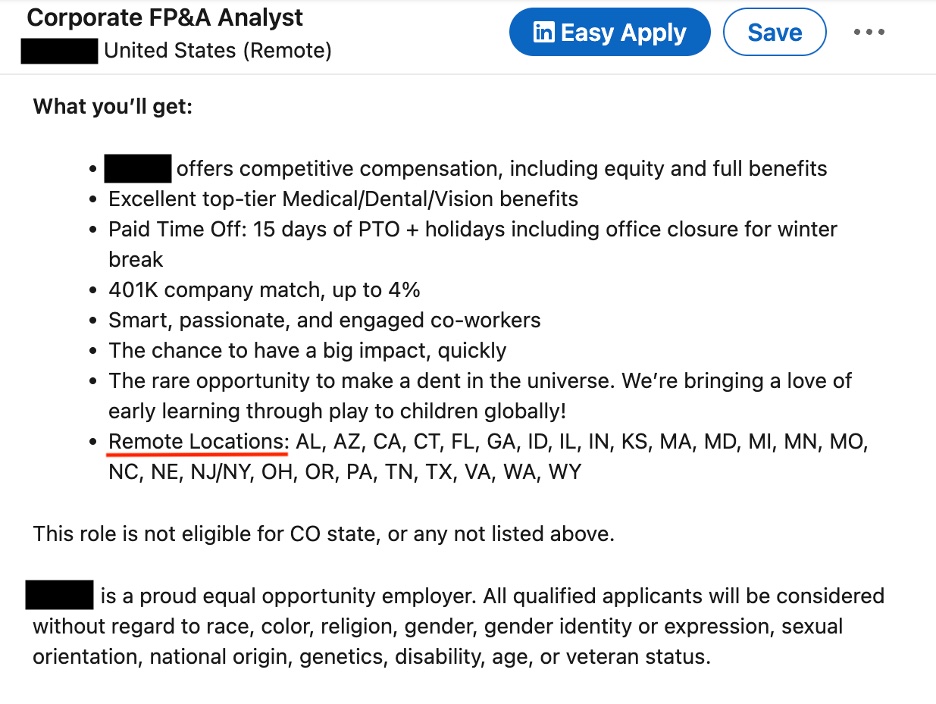
3 Takeaways from RecBuzz 2022 for Job Board Leaders
In September, we had the pleasure of attending this year’s RecBuzz Conference, an event held in Amsterdam this year, that brings together some of the brightest recruitment minds from across the globe.
After attending dozens of insightful panels and presentations, we identified three key takeaways for job board leaders to keep an eye on in the coming months. Check them out below.
1. Remote Hiring Is Still in Its Infancy – Find Ways to Leverage It
We’ve written about the importance of including job tags to denote hybrid and remote positions on your job board. And while that advice is evergreen, the current talent shortage makes remote work – and highlighting it appropriately – a massive opportunity. Employers and job board leaders should capitalize on it today.
But don’t just take it from us; take it from RecBuzz keynote speaker and Head of Trust & Employer Compliance at WorkMotion, Pieter Manden. In his presentation, Pieter underscored the value of a more dedicated remote hiring approach. In fact, Pieter argued that today’s labor shortage isn’t entirely a product of having too many jobs; it’s a product of not looking for workers in enough places.
As an example, Pieter highlighted the potential for job seekers in southern Europe to fill roles – and alleviate the labor shortage – in western Europe. But you can easily apply this logic to the US.
After all, it’s not uncommon to see companies share remote positions with certain restrictions (see Figure 1). Or you might see employers flatly discouraging Colorado-based job seekers from applying (but that’s an issue worthy of its own blog post).
 Figure 1: A “remote” job listing that only offers remote work to applicants based in 27 states
Figure 1: A “remote” job listing that only offers remote work to applicants based in 27 states
Aside from encouraging clients to cut that language from job descriptions, job boards can also increase the visibility of remote-eligible positions by using a job replication tool.
Job replication duplicates a job listing and alters a selected field, like location. So if an employer wants to get its remote position in front of more candidates, you might support them by using job replication to post the listing with locations in the Midwest and Pacific Northwest.
2. High-Quality Data Wins in Any Job Market
With a potential recession on the horizon, both employers and job boards are adopting strategies to weather the storm. During his presentation, friend and current client Steven Rothberg from College Recruiter identified various measures job boards may take to insulate their business.
For instance, before a recession, job boards may want to diversify revenue streams, whether by tapping into new markets or adopting a new revenue model (subscription, programmatic, or CPC). During a recession, though, it’s best to invest in sales and marketing to maximize the value of your current products and services.
But regardless of market conditions, job boards – and those who want to understand the employment market – need high-quality data.
A recession won’t change the user experience of your job board. But data will. If you want to populate your job board with organic listings, you need data. If you want to add industry-specific roles to your job board, you need data. If you want to keep the listings on your job board up to date, you need data.
3. AI Isn’t a Magic Lever That Job Board Leaders Can Pull (Yet)
The talent shortage has hit employers hard in 2022. Seventy-five percent had difficulty filling open positions. And many companies felt that job boards weren’t helping them attract qualified applicants. Case in point: employers gave job boards a net promoter score of -48. That’s negative 48, to be clear.
Understandably, client dissatisfaction has job boards looking for ways to improve and innovate. But in his keynote speech, Executive Director of Global Research at SIA, John Nurthen noted that the potential harm of innovations like artificial intelligence could outweigh any gains job boards may experience.
AI specifically raises some ethical concerns for job board leaders, as it’s fairly unproven at this stage. And as our industry continues to evolve and encourage more diverse, equitable, and inclusive practices (like adding salary information to job listings) it’s vitally important that job boards don’t let innovation come at the cost of that progress.
The Jobs Advertising Market Is Stronger Than Ever
In spite of record-high inflation and a potential recession, the jobs advertising space increased its global revenue by an impressive 36 percent in 2022. Translation: job seekers and employers are increasingly using online tools to find and market jobs.
So, instead of building on that momentum by investing in AI, see if there are ways you can improve the user experience of your job board. Or try scaling your job board with organic listings via a backfilling solution (like our JobsIndex). Or, if you’re early in your job board journey and still completing web scraping in house, consider outsourcing that time-consuming task to the experts.
Interested in stepping up your job board’s presence online? Reach out. We’d love to help.
